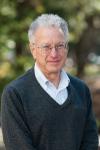Changes in primate teeth linked to rise of monkeys
Submitted by rhkayen on Mon, 07/11/2016 - 13:57UC Berkeley paleontologists have identified distinctive features of primate teeth that allow them to track the evolution of our ape and monkey ancestors, shedding light on a mysterious increase in monkey species that occurred during a period of climate change 8 million years ago.
